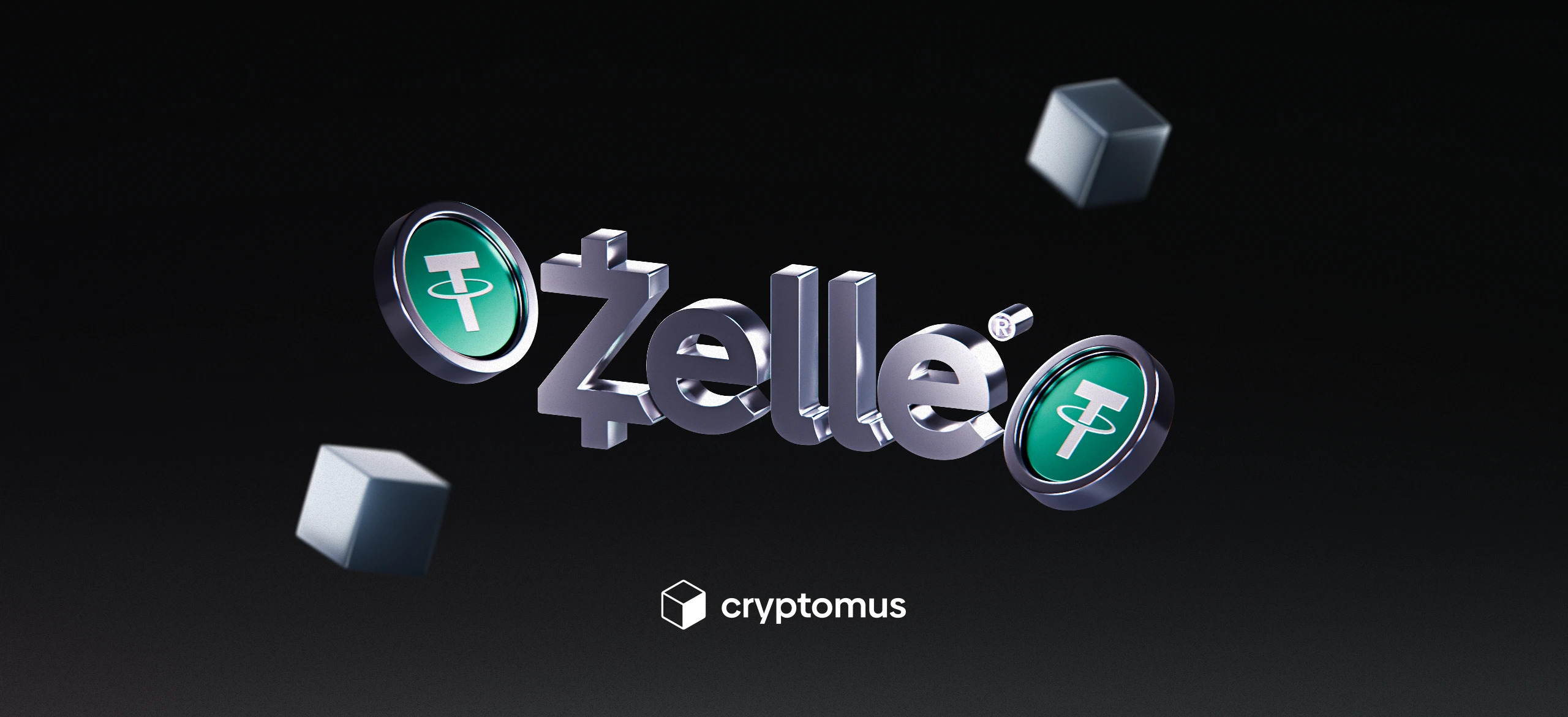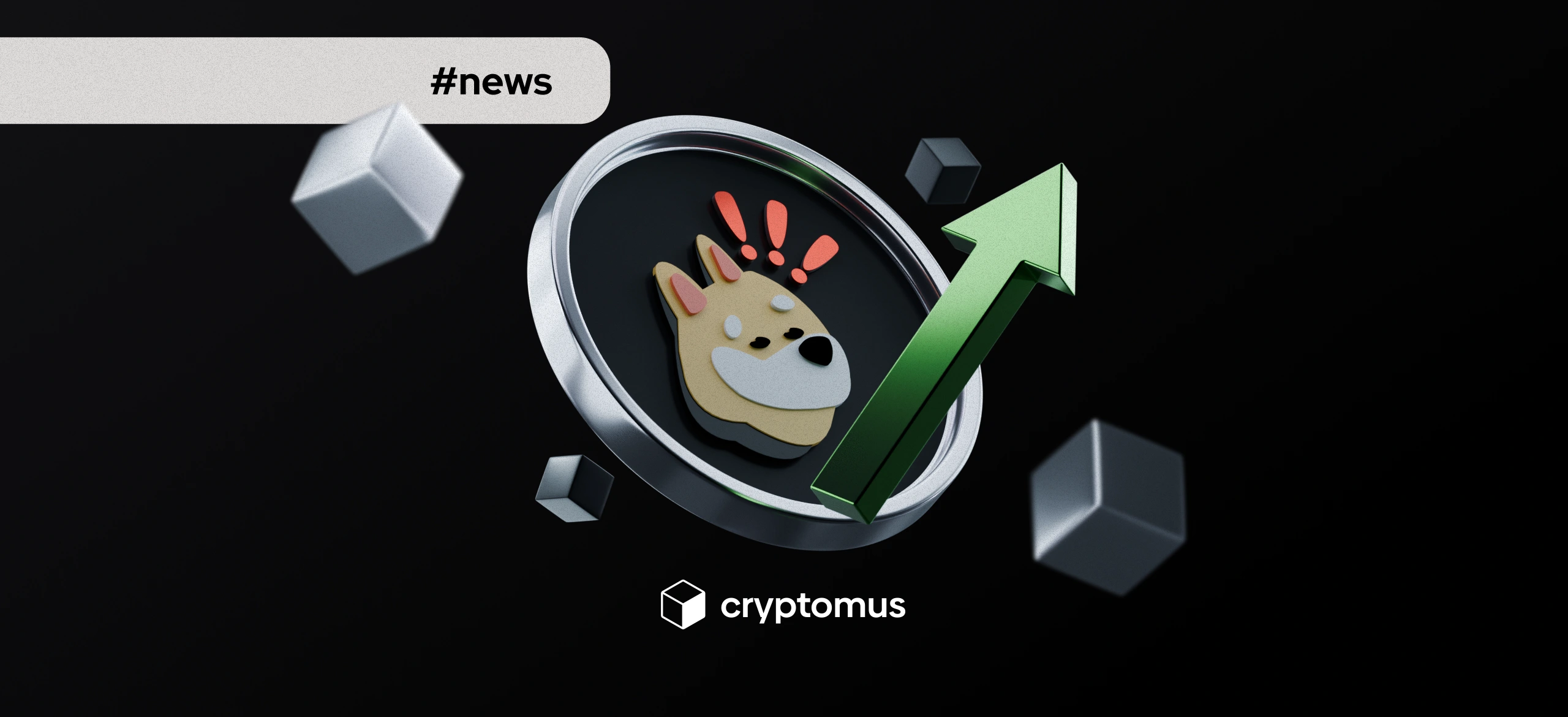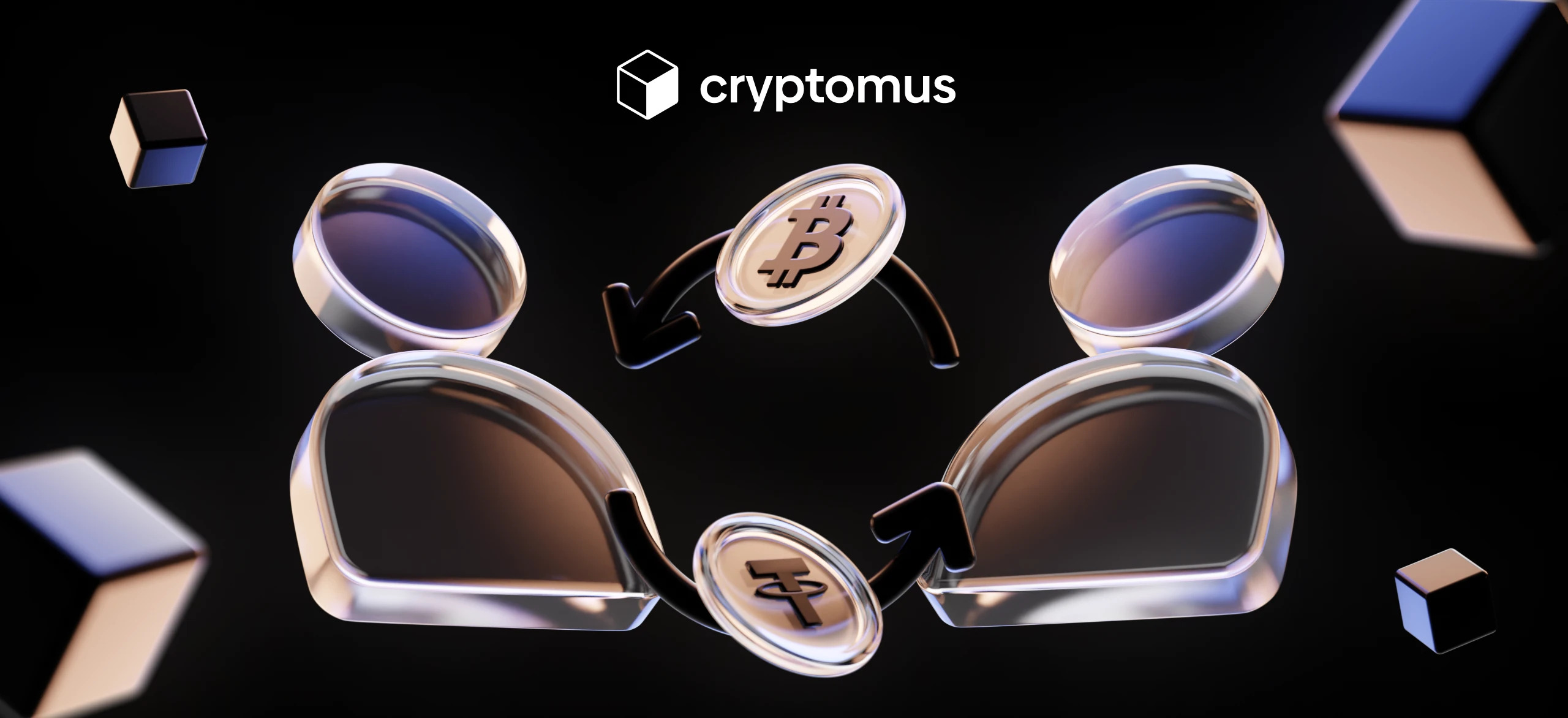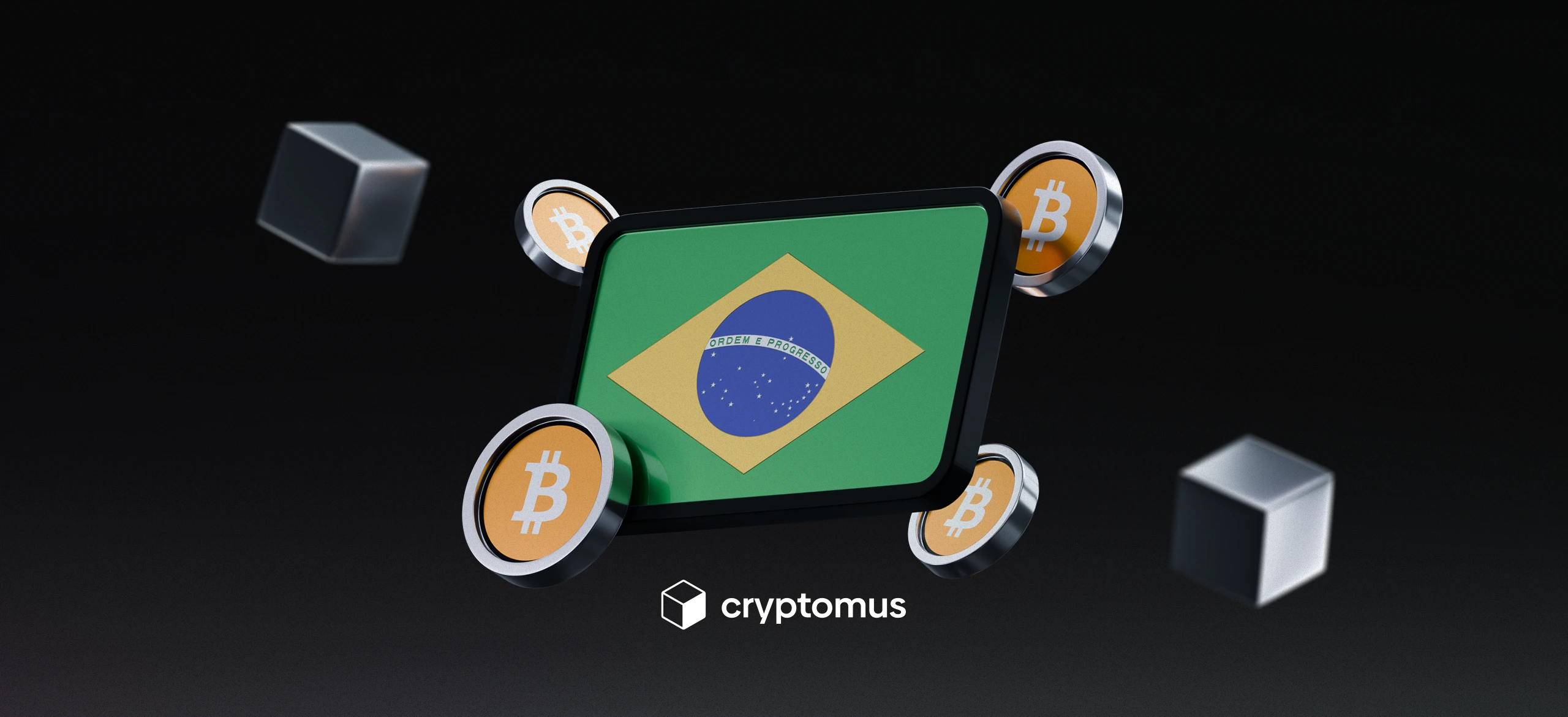
How to Buy Crypto in Brazil?
Table of Contents
Cryptospace is considered a young and still developing sector. That's why in many jurisdictions the legal clarity for digital finance remains shady and complicated. Today, we'll research every important thing about crypto in Brazil and answer the most popular questions. Let's begin!
Is It Legal to Buy Crypto in Brazil?
Yes, buying and holding cryptocurrency in Brazil is legal. This is established by the Marco Legal dos Criptoativos (Legal Framework for Crypto Assets, Law No. 14,478/2022), which provides the foundation for regulating the digital asset market. To implement this law, Decree No. 11,563/2023 designated the Central Bank of Brazil (Banco Central do Brasil, BCB) as the supervisory authority over virtual asset service providers, while the Brazilian Securities and Exchange Commission (Comissão de Valores Mobiliários, CVM) oversees cases in which crypto assets are classified as securities.
These rules also create tax obligations: cryptocurrency is treated as property, which means you must declare it in your Individual Income Tax Return (Imposto de Renda da Pessoa Física, IRPF), pay Income Tax (Imposto de Renda, IR) on profits when selling, and—if your monthly transactions exceed certain limits—submit a monthly report under Normative Instruction of the Federal Revenue Service (Instrução Normativa da Receita Federal do Brasil, IN RFB) No. 1,888/2019. We tell more details further in the article.
Ways to Buy Crypto in Brazil
There are several ways to buy crypto in Brazil, with their own advantages and disadvantages. Let's take a look at each of them.
Centralized Exchanges (CEXs)
These are online platforms where you can register, complete KYC, and buy/sell cryptocurrency for BRL directly.
Examples: Mercado Bitcoin, Cryptomus, OKX.
-
Pros: user-friendly interface, high liquidity, various cryptocurrencies, Pix payment agent and card support, strong security measures.
-
Cons: KYC is required, high commissions.
Decentralized Exchanges (DEXs)
Purchase crypto on decentralized exchanges directly through smart contracts without intermediaries.
Examples: Uniswap, 1inch, dYdX.
-
Pros: full control over finances, no KYC, ability to buy tokens that are not available on CEXs.
-
Cons: security fully depends on you, risk of receiving non-AML-compliant money.
P2P (Peer-to-Peer) Trading
Buying directly from other people through built-in P2P services on exchanges.
Examples: Cryptomus P2P, Binance P2P, Paxful P2P.
-
Pros: wide range of payment methods, low fees.
-
Cons: high risk of fraud, takes time to find the seller that suits your needs.
Fintech Apps and Banks
Some banks and fintech services allow you to buy cryptocurrency directly through a mobile app.
Examples: Nubank, Mercado Pago.
-
Pros: integration with your bank account, everything (transaction processing, checks, invoices, etc.) in one app.
-
Cons: limited choice of coins, high fees, no withdrawal option.
Crypto ATMs
Physical terminals through which you can buy cryptocurrency with cash or a card.
Examples: Bitomat and Coinflip machines in São Paulo and Rio de Janeiro.
-
Pros: a quick method, direct cash withdrawal.
-
Cons: high fees (often 5–10%), limited availability (only in large cities), identity verification is often required.
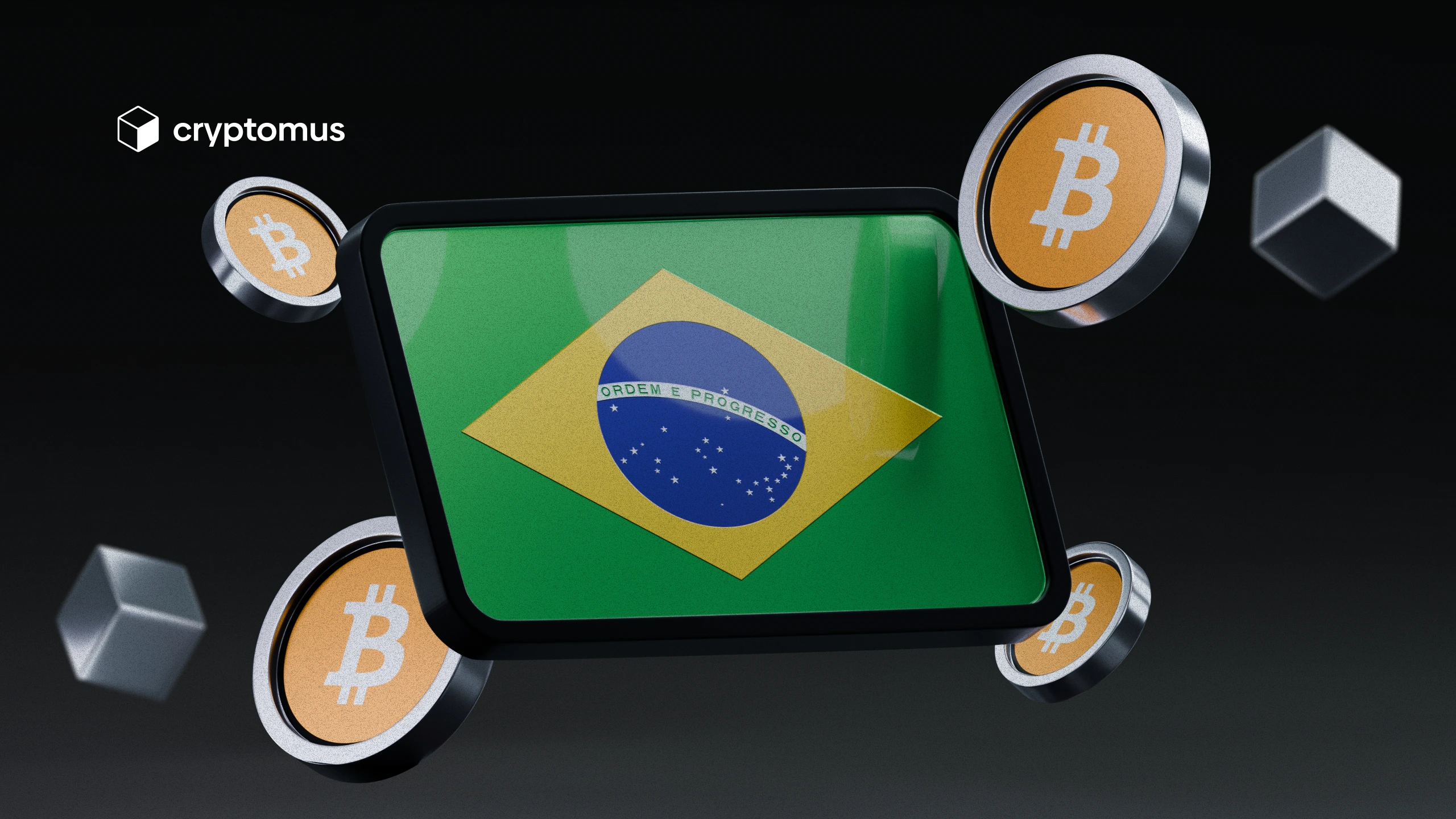
Step-By-Step Guide on Buying Crypto in Brazil
To buy crypto in Brazil, you'll need to:
-
Choose a reliable method that suits your needs (exchange, ATM, etc.).
-
Register a wallet.
-
Verify trust and security before using.
-
Prepare your payment method (bank card, transfer, e-wallet, or cash).
-
Complete the transaction and make sure you actually receive the crypto.
-
Store and record your assets safely for future use.
And now let’s look at each method in more detail.
Centralized Exchanges (CEXs)
Here, you should select an exchange, register and complete verification (KYC), and fund your account with BRL. Then go to the buying page, select the cryptocurrency you want to buy, confirm the transaction and get crypto in your wallet.
Decentralized Exchanges (DEXs)
To buy on a DEX, you need a wallet and some cryptocurrency for the commission. After connecting to the platform, you select a coin, specify the amount, and finalize the purchase. This gives you complete control and anonymity but requires experience and carries the risks of smart contracts.
P2P Trading (peer-to-peer)
You find a seller directly through exchanges with P2P services, find a suitable offer or create a new one, choose a convenient payment method, transfer the money, and after the transaction is confirmed, the crypto is transferred to your wallet. The main thing is to double-check all the information you enter and be ready for the always-included risk. Pro tip: you track your transactions using its hash through a blockchain explorer to know what goes on with your funds at any point.
Fintech Apps and Banks
In the Nubank, Mynt, or Mercado Pago apps, simply open the “Cripto” tab, select the currency (BTC, ETH, etc.), specify the amount in Brazilian reais, and pay from your account or card—the purchase is instant, but it is usually not possible to withdraw the asset to an external wallet.
Crypto ATMs
You approach the terminal (for example, CoinCloud in São Paulo), enter the purchase amount, scan the QR code of your crypto wallet, and pay with cash or card. The machine sends the crypto directly to your address—convenient and fast. You may also need to provide documents proving your identity.
Simple Way to Buy Crypto with Your Credit Card
Now let’s dive into the process of buying crypto with your credit card. We’ll take Cryptomus as an example.
-
Step 1: Sign up for a Cryptomus account to get your personal cryptocurrency wallet. Don’t forget to protect it by enabling 2FA and setting a strong PIN.
-
Step 2: To buy cryptocurrency on Cryptomus, you need to pass the KYC procedure: take a selfie, provide your documents, and verify your contact info. You may do it through your personal account settings.
-
Step 3: Return to the dashboard and click “Receive”. Fill in all your criteria: select the desired cryptocurrency to buy and a suitable network. Then choose “Fiat” as a type of receive option when you’re buying crypto with a debit or credit card.
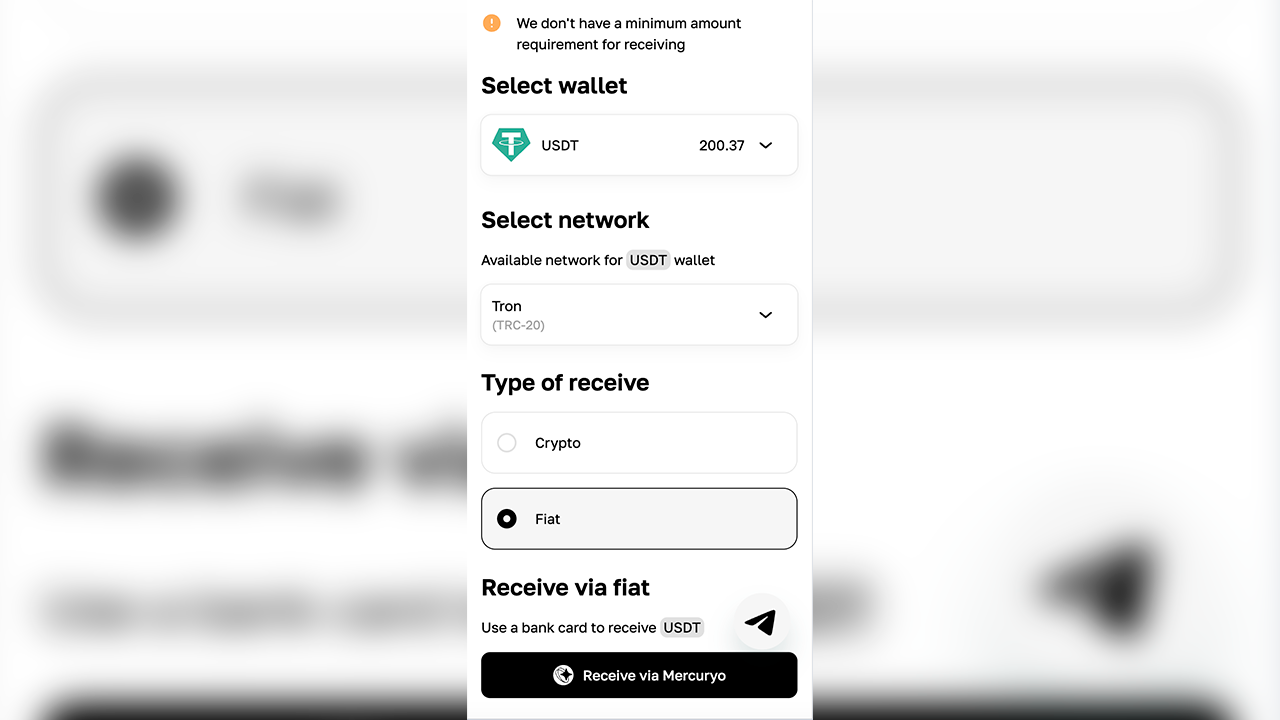
- Step 4: Click on “Receive via Mercuryo” and fill in the gap with the amount you’re going to pay in the preferred currency. The receiving amount of crypto will be automatically calculated in the payment form.
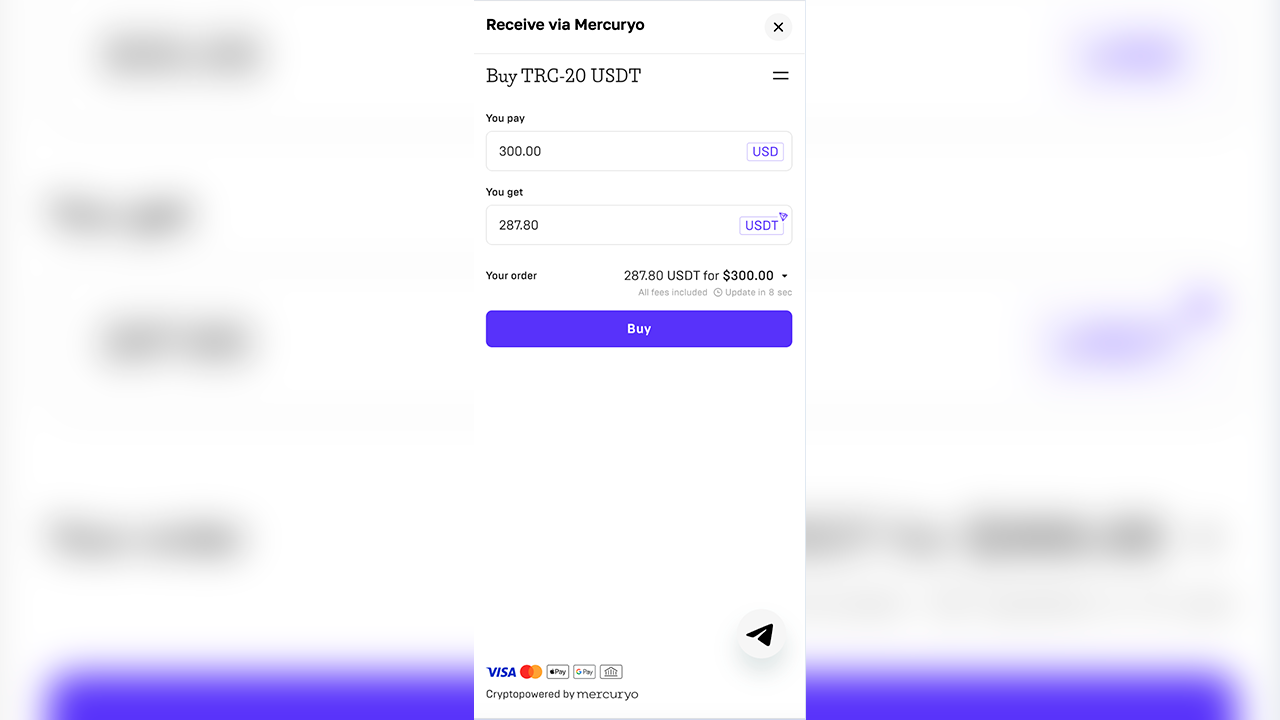
- Step 5: Next, fill in your email address for getting a verification code, and enter your debit or credit card details to make a purchase.
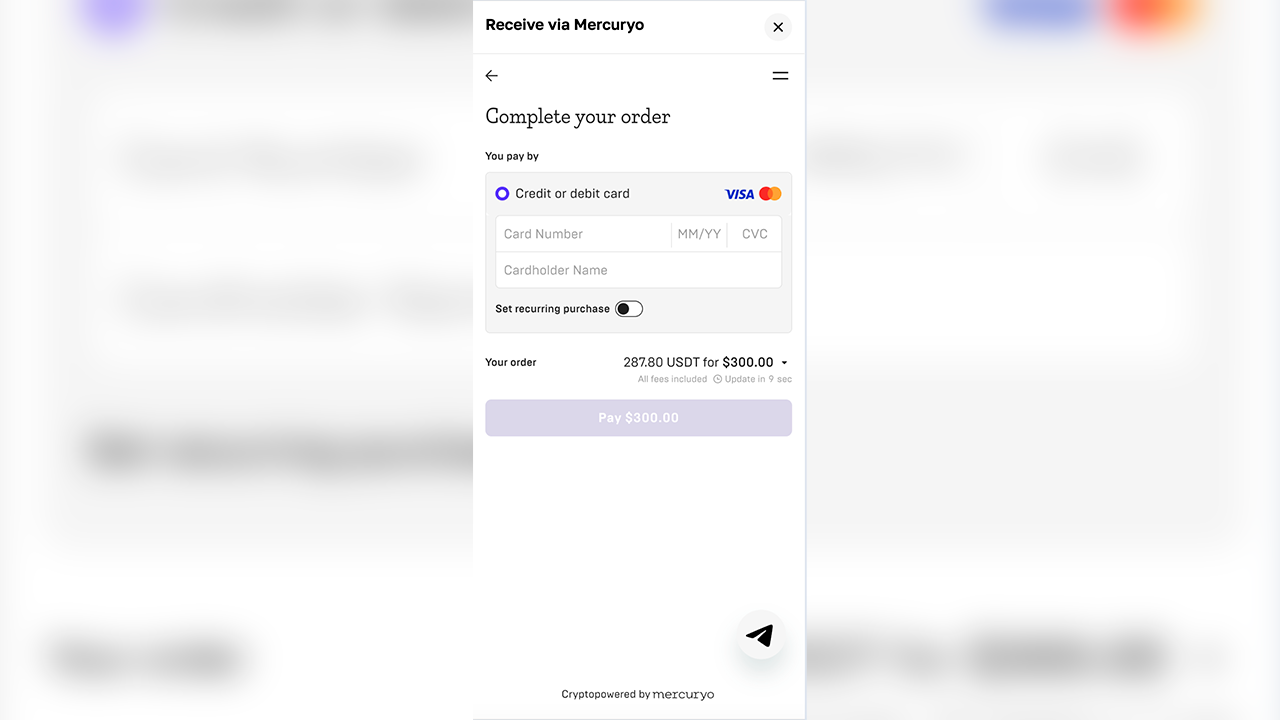
Well done! You’ve just bought cryptocurrency with a card without any complications. The funds will be credited to your personal wallet soon!
Do You Have to Pay Taxes on Cryptocurrency Investments?
In Brazil, crypto is considered your property, just like a car or an apartment. So, it must be declared in your Imposto de Renda (Income Tax) return. The rule is simple:
-
If you have more than 5,000 BRL in any cryptocurrency at the end of the year, you are required to declare it in the “Bens e Direitos” (Assets and Rights) section. You don't pay the tax, just keep the authorities updated on your belongings.
-
You only pay tax on the profit from the sale, and only if you sold cryptocurrencies worth more than 35,000 BRL in a single month.
The rates are as follows: profits up to 5 million BRL are taxed at 15%, and for very large amounts, the tax gradually increases (up to 22.5%). If you sold less than 35,000 BRL per month, you do not need to pay tax, but you still need to declare your cryptocurrency if you exceed the 5,000 BRL threshold.
Did you find this article useful? Did we answer all of your questions? Let us know in the comments below!
Simplify Your Crypto Journey
Want to store, send, accept, stake, or trade cryptocurrencies? With Cryptomus it's all possible — sign up and manage your cryptocurrency funds with our handy tools.
Get Started







